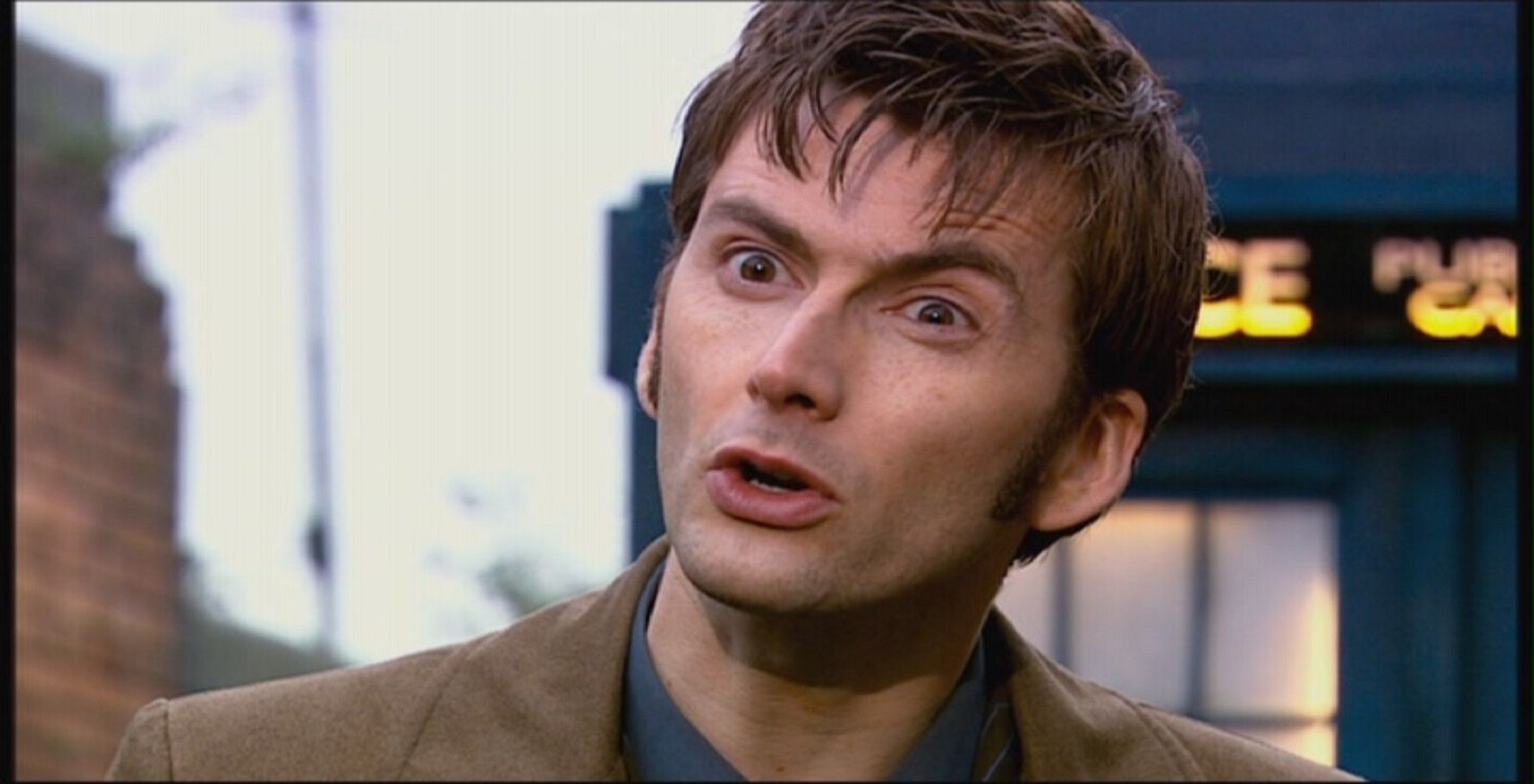Far away in a distant part of the universe, there existed a species of aliens known as Time Lords, creatures that could manipulate the time-space continuum to travel backward and forward to any point in time and space. From this massively powerful species emerged a single Time Lord, who took it upon him/herself to travel all over the universe (making a surprising number of pit stops in 21st century suburban Britain) in his/her time machine called the TARDIS.
Across his/her countless travels over a very, very long time span, this Time Lord came to be known simply as the Doctor. Thus was born the saga of Doctor Who, Britain's most beloved sci-fi series with millions of fans around the world. But as adored as the series is, it doesn't stop us from questioning these 10 disturbing facts about its narrative.
The Doctor Keeps Kidnapping Companions
The Doctor is a very mysterious being, which is, of course, part of his/her appeal. But, it does make you wonder why the multiple companions they've had over the years are so willing to be kidnapped? Think about it. The Doctor almost never reveals his/her true nature to his/her companions until they are actually inside the TARDIS and teleporting to a distant location.
It is usually at this point that a normal human would panic to be trapped with a stranger in an unknown vehicle being carried to who knows where against their will. Yet, the companions never seem to pause to consider that they have just been the victims of a kidnapping.
The TARDIS Is A Victim Too
The Doctor is all about freedom and liberty for all creatures. Which is ironic, considering he/she's been using a living, thinking creature as his/her personal bachelor pad/battle tank/mode of transport this whole time. That's right, the TARDIS is part of a sentient species created by the Time Lords to do their bidding from the moment of their births.
That means the Doctor has been regularly using a creature that has known nothing but subjugation and captivity throughout the thousands of years that it's been alive and under his/her command.
He/She Touches Lives, And Not Always In A Good Way
The first episode of Doctor Who under Steven Moffat showed us a little girl called Amy Pond, who met the Doctor once and then spent the rest of her life awaiting his return while being forced to question her sanity. That's what meeting the Doctor does to a regular human. It shows them a glimpse of a world they cannot comprehend and leaves them wondering if they're going insane.
Now, imagine the countless Average Joe side characters that the Doctor has met over the years. What kind of disturbing thoughts must be going through their heads after being introduced to the wider universe thanks to the Doctor, and will they ever be able to go back to their normal lives again?
He/She Has The Powers Of A God, But The Temper Of A Person
The Doctor is, to all intents and purposes, an actual god. He/she has created and destroyed entire realities, manipulated time and space endlessly, lived to see the end of the universe and annihilated entire armies and alien species. You would expect a godlike being such as this to also have the wisdom to match.
Unfortunately, the Doctor is all too human, even when exercising his/her immense power. He/she frequently plays judge, jury, and executioner and inflicts the most horrific, eternal punishments for crimes that, while terrible, probably don't deserve unending torture for the rest of time. No more horrifying example of this behavior is needed than the ending of the episode "Family of Blood."
Humanity Has No Control Over Its Destiny
We human beings pride ourselves on being a strong, independent species that went from being cave-dwellers to a space-faring race. Yet, in the world of Doctor Who, the humans have a long history of being controlled, manipulated and regularly mind wiped by other, superior species.
The Silence were a particularly nefarious example of an alien race controlling the course of humanity. But the Doctor has also been frequently responsible for being the puppet master standing behind the curtain, manipulating the path humanity takes and keeping them in ignorance of the larger universe and the alien species who regularly visit their planet.
The Doctor Has Many Contradicting Backstories
Doctor Who has been on the air for a very long time. We get that it can be difficult to keep all the parts of such a massive storyline straight at all times. But you'd think the writers would at least want to keep the Doctor's backstory nailed down and kept the same over the years.
Unfortunately, the Doctor's backstory seems as unreliable as that of the Joker from The Dark Knight. The Doctor once claimed to have a human mother, hence his fondness for Earth. Later, he was confirmed to be fully a Time Lord. There was also an episode where Lord Morbius looked into the past of the Fourth Doctor and saw many past regenerations that have since been completely ignored by later seasons.
The Doctor Doesn't Follow His/Her Own Rules
For a show about time travel, Doctor Who sure likes to play fast and loose with the rules behind interfering with timelines. There have been countless instances where the Doctor has insisted that he must not interfere with a particular past or future event, only to later go right ahead and interfere anyway. And he's been doing this for a very long time.
This usually happens when one of the Doctor's companion's lives is at stake. Which makes us wonder how flexible the rules of time travel are for the Doctor to be constantly breaking them without blowing up the whole space-time continuum by this point. Which brings us to our next point...
No Real Consequences
Deaths are not always permanent in Doctor Who. Past tragedies are regularly corrected by the Doctor. So are future ones. Also, the ones that the Doctor insists must happen to preserve the space-time continuum. There are few problems, past, present or death-related, that the Doctor cannot fix with his time machine and sonic screwdriver.
Which makes it really hard to believe anything ultimately matters. Once you see the Doctor pulling the fix-everything-ever trick in multiple episodes, it can be hard to take any future threats the series raises seriously.
The Doctor Is Often Petty And Manipulative
The character of the Doctor has frequently been called into question by his/her friends, enemies and even those who have only heard of him/her. That is because the Doctor, despite being the 'hero' of the story, often does not act like one. He/she has wiped the memories of friends, led invasions against his/her own planet, and repeatedly manipulated those around him/her to achieve the end goal.
When such bullying tactics work, the Doctor is hailed for being a hero and saving the day. At other times, things go horribly wrong, people die (a lot of them), and the Doctor is left to live with the guilt.
The Doctor Is A Warrior, Not A Healer
For a show about a Doctor, there is actually very little healing going on in the episodes. Now, we get that the show is an adventure drama and not a medical drama, but it's hard to forget that considering the amount of advanced, otherworldly tech the Doctor has at his disposal (not to mention an actual time machine), he could cure every ill person who ever lived, anywhere in the universe.
But the Doctor prefers to roam around the universe instead, observing alien species like a scientist and stepping in to help prevent catastrophes where possible. A noble task, yes, but it is an undeniable fact that the titular character of the show could save many more lives if they acted like a real doctor instead of a glorified police officer.











